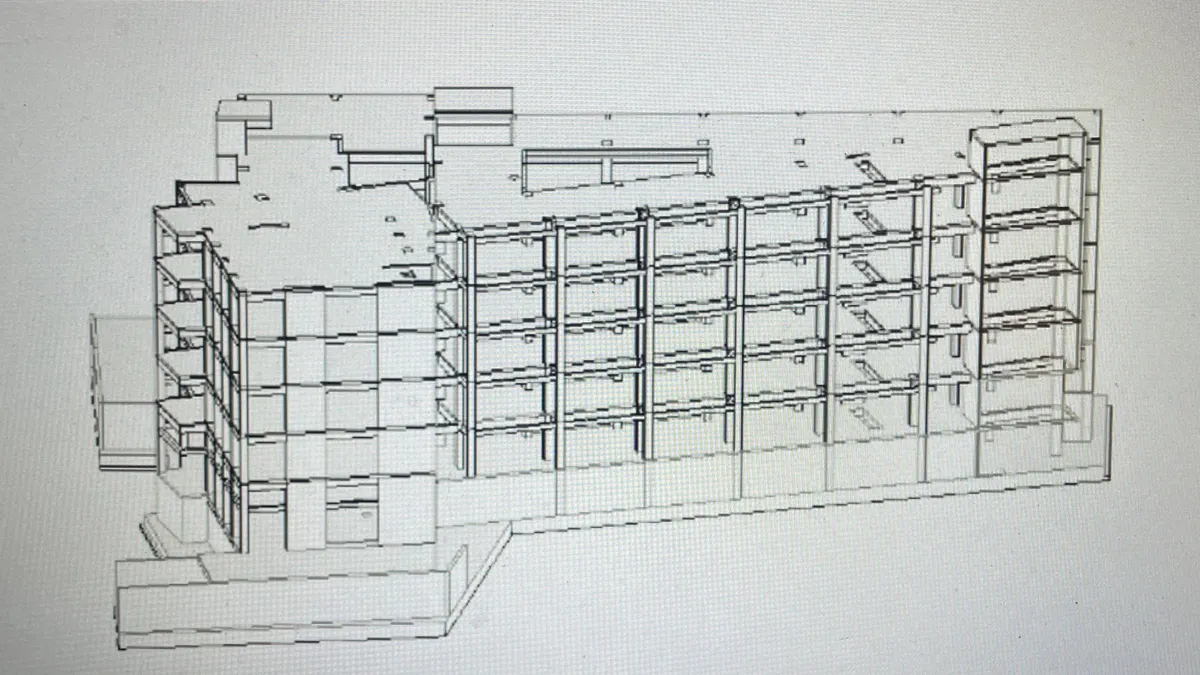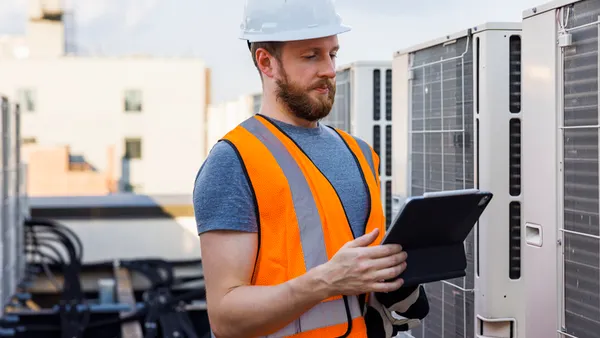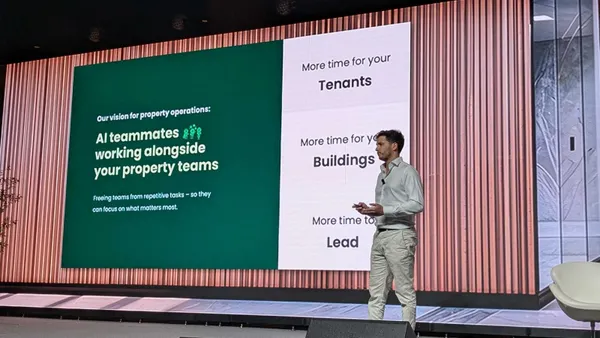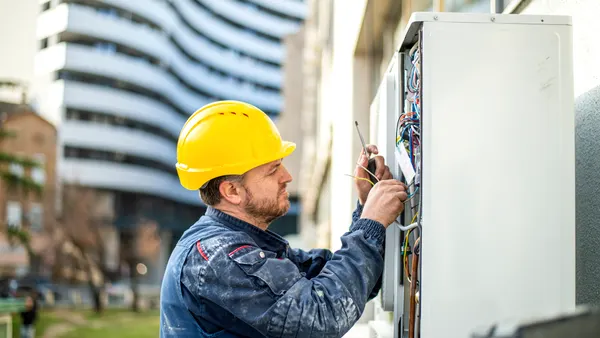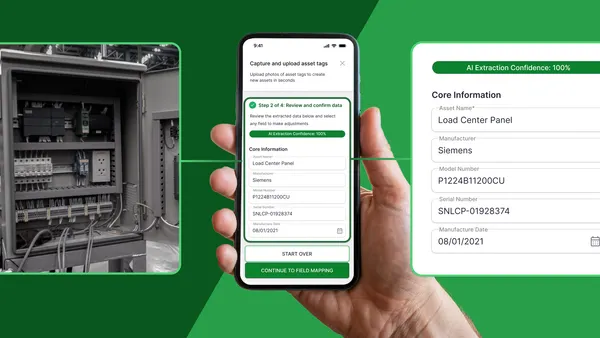Trane Technologies on Thursday announced the launch of AI Control and ARIA, two technologies that it says will help keep customers “at the forefront of building optimization and energy management.”
Given aging infrastructure and talent shortages, embracing digital tools isn’t an option for many facilities managers, Trane said earlier this year in a Future-Ready Building report, which identified business drivers like operating costs and sustainability that impact building technology decisions.
The company’s new tools respond to those drivers, Holly Paeper, president of commercial HVAC in the Americas at Trane Technologies, said in a statement. “Through our purpose-built AI solutions … we can help building owners dramatically reduce energy waste, lower operating costs and enhance sustainability,” she said.
AI Control analyzes building data like occupancy, energy use and weather to adjust HVAC operations. Trane says the technology can reduce heating and cooling energy up to 25% and carbon emissions up to 40%.
ARIA is Trane’s AI building agent, developed by an AI lab that the company launched after acquiring autonomous and generative AI building provider BrainBox AI in December.
The agent, available on mobile and desktop in more than a dozen languages, can provide building operators with recommendations on what actions to take based on conversational prompts they enter into the software.
“Our vision is to unlock next-generation building performance, delivering both immediate and long-term benefits for our customers and the planet,” said Riaz Raihan, senior vice president and chief digital officer, Trane Technologies.
With three-quarters of commercial buildings 25 years or older and relying on outdated controls, according to a 2018 U.S. Energy Information Administration survey, modern technologies are essential to achieving operational, cost and sustainability goals, says Trane. Labor shortages compound the challenge.
“You’ve got a lot of dumb buildings that aren’t telling us anything,” Brian Haines, chief strategy officer at FM:Systems, said on an IFMA webinar on May 14 for World FM Day. “The key right now is that we’re at an evolutionary moment in the way we think about buildings.”
In order to keep critical environments running, smart building technology can help implement proactive monitoring, remote diagnostics, custom contingency planning and service level agreements that can extend equipment life with tailored maintenance plans, Trane says in its Future-Ready report.







